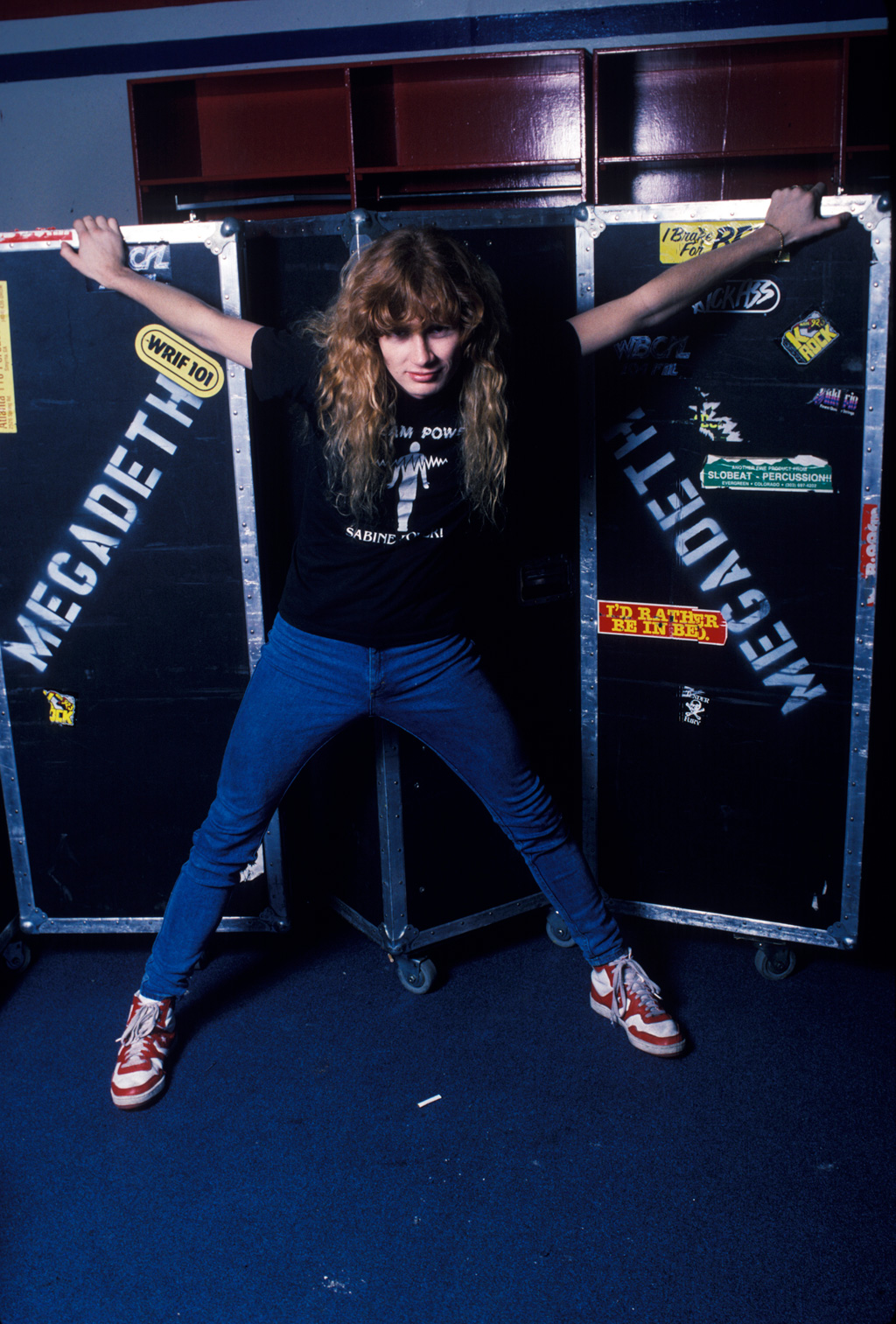Picture the scene: you’re 19 years old, and your three best friends in the world have just told you that they want nothing more to do with you, that you’re no longer welcome in their lives. The fact that these three men happen to be your bandmates in a group with whom you’ve traded riffs, drugs, punches and sexual partners over the past 18 months is only adding to your sense of injustice. But there’s more: you’ve been ejected from your living quarters and dumped at a bus station where a 4,000 mile coach trip awaits you. You will be forced to undertake this journey without a single penny in your pockets, meaning you’ll have to rely on the kindness of strangers for food and drink for the 96 hours it will take for you to return to your mother’s house on the other side of the country. You’d be fairly pissed off, right?
This was the scenario in which Dave Mustaine found himself in April of 1983, having been unceremoniously ejected from Metallica on the eve of the recording sessions for the band’s debut album Kill ‘Em All. A scrappy, mouthy, maladjusted alcoholic in a band who always prided themselves on living life in the red, Mustaine was no angel, but it was his forceful, feisty personality – allied to his incendiary guitar playing – which got Metallica noticed in the first place, his songs (Jump In The Fire, and The Mechanix among them) a key component of the band’s early arsenal. As he undertook that tortuous four day bus trip from New York to California, it’s little wonder that the teenage guitarist was bitter, bruised and out for blood: the concept of Megadeth as a vehicle for vengeance was forged in those darkest hours.
In his 2013 autobiography My Life With Deth, Megadeth bassist David Ellefson recalls Mustaine receiving a fan letter via Brian Lew, a San Francisco fanzine writer (and later the co-author of the superb Thrash metal photo-book Murder In The Front Row) wherein the letter writer expressed the hope that Megadeth’s first album would be faster and louder than Kill ‘Em All: Ellefson claims that the material on which he and Mustaine were then writing instantly became 40% faster.

While Mustaine himself doesn’t recall this specific letter (though doesn’t question its veracity), the anecdote is a neat illustration of his mindset at the time, in which he actively sought to position his new band in direct opposition to his old one. Ironically though, the very best thing about Killing Is My Business…, is how little debt Megadeth’s debut owes to Mustaine’s former band. For this, huge credit must go to drummer Gar Samuelson and guitarist Chris Poland, two musicians whose grounding in funk and jazz-fusion ensured that their contributions to Megadeth were startlingly at odds with conventional metal stylings. Unlike any other metal band on the planet at the time, Megadeth had swing, a nimble, fluid, jazzy sensibility which helped Mustaine’s riffs dance where his thrash metal peers simply pounded. In time, countless bands would draw inspiration from this approach, but 30 years ago Megadeth stood proudly alone in a field of one.
In truth, Killing Is My Business… And Business Is Good isn’t a classic album. Made by a band already alarmingly dependent on hard drugs, the production is weak, the playing is uneven – “You can hear the tempos shifting around, depending on whether it was a ‘heroin take’ or a ‘cocaine take’,” David Ellefson admits - and the songs themselves aren’t always as developed as they undoubtedly sounded in Dave Mustaine’s head at the time. But Killing Is My Business has attitude, spirit, venom and black humour in spades, and it’s the excess of these qualities which mean it will always occupy a hallowed position in the affections of metal fans the world over. It’s a triumph more for what it represents – the defiant return of an uncompromised underdog, the resurrection of a rebel outsider left for dead – than for what it actually is, a hastily-assembled collection of early recordings from a newly-formed, dope-sick band.
Within weeks of the album emerging, Megadeth were out on the road – minus Poland, whose dependencies were already becoming an issue – with a reborn Mustaine snarling and spitting at centre-stage once again. The singer knew that his band’s debut was far from perfect, but crucially it was a foundation, a starting point from which he could develop Megadeth into the outfit he always envisaged them to become, the world’s state of the art speed metal band, as their T-shirts would later proudly proclaim. And while Killing Is My Business… might be no-one’s idea of the perfect metal album, few other releases of its time are so imbued with fearlessness, attitude and ‘fuck you’ aggression. A messy birth it may have been, but Mustaine’s legendary status starts here.

